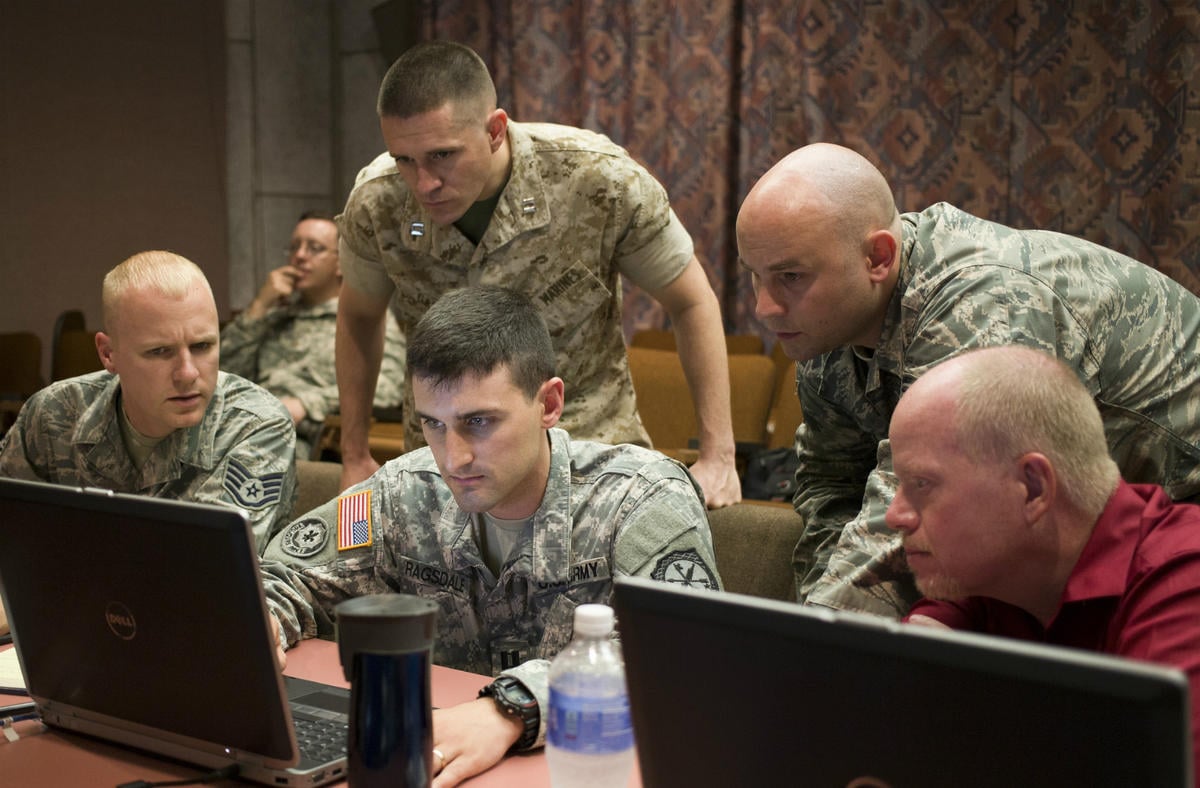Ga. Tech Receives Grant To Beef Up Military’s Cyberdefense

CREDIT STAFF SGT. TRACY J. SMITH / COURTESY OF GEORGIA ARMY NATIONAL GUARD
Georgia Tech researchers are trying to help the U.S. military secure its equipment ─ like naval warships and drones ─ from cyberattacks.
Cyberattacks on military equipment are on a different level compared to traditional cyberattacks that steal your credit card and Social Security information. You can’t stop to develop a strategy when there’s a cyberattack on a moving vehicle, like you can with security breaches at companies.
“If you’re flying [an] airplane, the airplane needs to fly, right?” says Wenke Lee, a computer science professor at Georgia Tech. “You cannot say, ‘Let me pause and figure out what do I do next?’”
Lee is also director of Georgia Tech’s Information Security Center. He and other researchers at Georgia Tech received a $2 million grant to develop new cybersecurity computer programs and software that could be installed on military vehicles or other equipment. He says the research is challenging because it’s dealing with real-time responses in the real world. “The way to kind of survive and withstand these unknown and future attacks is to build a system through diversity,” Lee says. By diversity, he means installing multiple versions of software, so that if a tank is hit, the entire vehicle isn’t compromised and it won’t break down.
The new software Georgia Tech expects to develop would help equipment like naval warships recover from cyberattacks and isolate affected parts without slowing down the entire system. This way, the ship wouldn’t lose control during an attack or while it was trying to repair itself.
A second part of the grant will develop a free, open-source security tool for companies to test how secure their system is against cyberattacks. It would, for example, allow industrial employees at utility companies to test their control systems. Both projects are expected to be complete by 2018.








